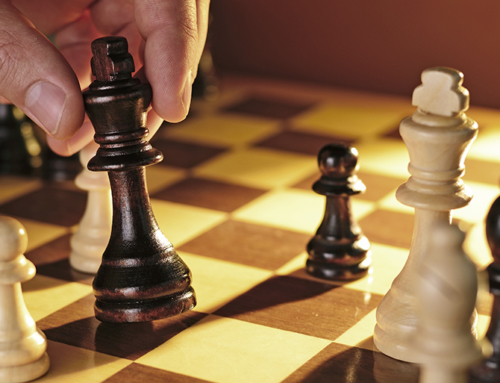I’ve received several emails from doctors who’ve recently taken their psychiatry board exams. Here are some quotes that I present to you anonymously and then provide my responses.
“I recently took the Psychiatry Board exam and I honestly don’t know what to think. I was struggling with time. The vignettes were super long….one of the video was about five minutes long. I did take about four breaks but honestly didn’t have time to eat lunch. I finished about five minutes early, but it did take me the whole time. Not sure if that’s a bad sign or what? I’m really scared that I may have failed.”
“I took my initial psychiatry cert exam yesterday and finished it 2 hours early. It made me feel good initially that I finished my exam but as time passes it created self-doubt if I would pass? I would like to get some advice from you… as I am sure you might be seeing many such candidates who have enrolled in your course! I would appreciate your response… ”
“I took my boards yesterday and even though I felt pretty good about the content unfortunately I did not pace myself well with the time and was unable to finish and did not complete about 30 questions…..so I am expecting not too pass….The video vignettes and the time it took to get thru those and just the lengthy vignettes in general are what slowed me down considerably.”
“There were questions on gender issues, kleptomania, pyromania, lots of neurology localizing brain lesions. Many questions on mental status exam. There were not any questions on frontal temporal dementia, or so it didn’t seem so. There were plenty of questions on psychotherapy, I felt every other question was about CBT or some sort of psychotherapy. Pharmacology did not include many of the CYP450 material, and I studied that hard.”
Weekly Photo
Here is a poster that was pasted onto a window of the Congress Theater on Milwaukee Avenue in Chicago. The Congress Theater is under renovation and has been taken advantage of by many artists as a temporary platform for their art posters. As the renovation proceeds, the posters disappear. I haven’t been able to identify this particular artist.
These quotes raise the question of exam pacing. One exam candidate ran out of time and did not complete all the questions. One candidate answered all questions but was pressed for time. And a third candidate finished early – significantly early.
What can we make of this?
Based on my experience I have not seen a relationship between finishing early and finishing at the last minute. Each exam taker has his or her own exam strategy.
One strategy – the fast one – is to read the question and choose the preferred response option either immediately or within a short amount of time, on the order of 15-30 seconds, after a short period of reflection. These individuals tag few if any questions for review; they do not plan on returning to these questions with answers of which they were unsure. They take their best guess on the first pass and move on. (Note that the vignette sections of the Psychiatry Certification exam do not allow tagging questions for review and returning to them. The candidate must move forward sequentially through all questions since they are related to one another.)
Another strategy is to use all the time available, to spend more time considering all the response options, and returning to questions for review as needed.
I myself use the first strategy. I try to complete the exam as fast as possible. I usually finish with 40% of the time remaining. This is not a conscious choice. I get increasingly tense as I proceed through the exam and try to sprint through it and get the heck out of there. It works for me: I read the question and reread it if I feel I did not get the point of it. I then answer immediately or after a brief period of reflection. I then take my best guess and do not second guess myself. After all, I likely have hundreds of remaining questions to still get through. And I never tag and return to questions – the thought of doing that leaves me feeling weak. Haha! (I just took the Psychiatry MOC exam this February.) But let me be clear: I am not advocating for this strategy: I am one person and I have a strategy that works for me.
The only strategy I do advocate for is to answer every single question on the exam. There is no down-side to choosing incorrectly. And even if you make a completely random guess, you have a 20% of getting that question right. Also, consider that if you can eliminate one response option as clearly incorrect, you will guess from among the 4 remaining response options and have a 25% chance of getting that question right. If you eliminate 2 wrong response options and guess from among the remaining 3 options, you have a 33% of getting the question right. Given this, if you are down to the remaining 5 minutes or so, go through all the remaining questions and randomly choose ‘A’ or ‘B’ or whichever choice 0 – but always the same one – for every single remaining question so you can bank on the approximately 20% of them being answered correctly.
Now, let me address the candidate who had 30 questions left unanswered. It happened and we can’t go back to change that. I believe that candidate still has a good chance of passing. It, of course, depends on his performance on the questions, the great majority, that he answered. Consider that the Psychiatry Certification exam has 480 questions. Each year the percentage of correct answers needed to pass varies somewhat, from about 68% to 73%. To be conservative let’s say this year candidates need 75% correct answers to pass. That translates into 120 questions that can be wrong and still result in a passing score. So 30 unanswered questions hurts but is still highly compatible with passing the exam.
We learn another important lesson from the quotes above: board exams test you broadly on a range of topics. Before you panic and start doing a deep dive on gender issues – as mentioned by one writer – consider that the boards have different versions of the exam. The very next candidate may have had zero questions on gender issues. Every time an exam is held I receive emails from candidates telling how heavily weighed their exam was for topic “x” but the topic “x” differs with every writer. (In my recent MOC exam I had about 4 questions somehow related to illness anxiety disorder – strange, I thought.)
Additionally, consider which questions you will most remember after the exam. The answer is likely the questions you struggled with: you were expending a lot more mental and emotional energy on them and they will remain most prominent in your memory.
Let me end with this thought: once you take the exam, do your best to put it behind you. There is nothing you now can do to alter the result. If you have trouble controlling your ruminative and worry thoughts, give yourself some scheduled time for those thoughts and ruminate and worry your heart away during that period. Then place them away and turn your attention to the rest of your life. (You’ll hear back from the ABPN in about 6 weeks.)
Additionally, failing an exam stinks, I know. But it is not the end of the world. I failed my psychiatry oral boards twice – the best thing that ever happened to me! It was my spur to begin deconstructing the oral boards and my performance, and led me to start giving oral board training courses. Which, in turn, led me to develop all these other courses and conferences you probably know about. And that has led me to be communicating with you at this very moment. Haha!
Take care. And know I’m keeping my fingers crossed for your success. And know that I like and respect you just the same whether or not you pass your exam. 😉
Until next time,
Dr. Jack
LanguageBrief
Today’s Quotes
“… Failure is not final. Failure is not fatal: it is the courage to continue that counts.”
– Winston Churchill“Success is not a good teacher.”
– Shah Rukh Khan“I have self-doubt. I have fear of failure. I have nights when I show up at the arena and I’m like, ‘My back hurts, my feet hurt, my knees hurt. I don’t have it. I just want to chill.’ We all have self-doubt. You don’t deny it, but you also don’t capitulate to it. You embrace it.”
– Kobe Bryant







Leave A Comment